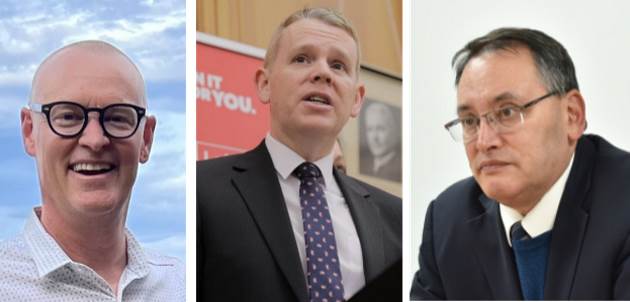
One of the recurring themes of being a professional health leader in New Zealand is constantly dealing with the revolving door of health and political leadership.
Those who are observant will notice the familiar names representing professional health sectors such as Samantha Murton and Bryan Betty from the GPs, Sarah Dalton for the senior doctors, Kerri Nuku, and Dunedin’s own Anne Daniels for our nurses.
The other independent health advocates are the same voices, and incidentally so are the media who report on the health issues.
We collectively, since 2017, have had to deal with numerous different health ministers and spokespeople, and since 2022 four different Health NZ board chairs and a seemingly endless turnover of health bureaucrats to pitch our concerns and solutions to.
To be honest, the only consistency within health leadership seems to be constant change.
The irony of the time since 2018, when the national health review started, is the expectations that our health professional leadership and advocates promote has not changed.
We all continue to preach from the same podium with similar generic expectations.
The workforce needs to be resourced, governed and protected so they can operate unhindered to provide the health services that all New Zealanders deserve from their publicly funded health system.
There are several ironies that continue to hinder the ability of our health workforce to work to their potential.
I have worked for over 30 years in the heart of a frontline health profession within a public hospital. I struggle to think of the last time I felt secure, under-control, respected and positive about my place and that of my profession within the health system.
We lurch from low to lower depths almost weekly, it seems. I am fortunate with my professional leadership role to be able to communicate this directly to those in health and political leadership.
But what has been the outcome for our profession and my simply amazing work colleagues? Unfortunately for the profession I work in, absolutely nothing.
In fact it is fair to say less than nothing is more to the point as many of our past work conditions are now eroded away.
New Zealand still, unbelievably, has no national pathology leadership, nor governance and consistent funding structure for these essential frontline services.
We still have no national chief medical scientist position among health leadership.
We still have no national pathology data collection that can benchmark regional performance metrics along with overall capacity and capability.
We still have no overarching national pathology IT platform with regional delivery.
We still have no co-ordinated national precision health policy with consistent generic incorporation.
We still have no confirmed pathology workforce future proofing plan.
I won’t even start on the physical state of most of our pathology labs.
And just to cap it off, your scientists and technicians that work in the Dunedin Public Hospital laboratory earn on average $25,000 less than those working in the Christchurch hospital doing the same roles.
I could go on, but I think it’s obvious what the gist is here.
We now move into the new era of Health NZ operating under a single commissioner, Prof Lester Levy.
He comes at a time when most have watched a significant deterioration across the publicly-funded health system since Health NZ started in July 2022.
We hear constantly about the lack of direct clinical intervention in driving genuine positive service improvements.
It doesn’t take much common sense to realise that there is a group of proven health professional clinical leadership who might just have the way out of the desperate situation our frontline is in.
But who has the leadership and courage to listen and implement what we are all collectively recommending?
— Terry Taylor is the immediate past-president of the New Zealand Institute of Medical Laboratory Science.












